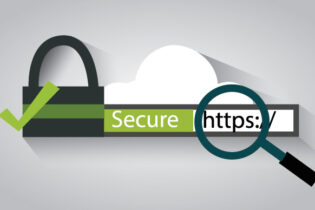
You’ve likely heard about wildcard certificates, but do you know their purpose? In a nutshell, they’re digital certificates that let you secure multiple subdomains under one domain. Think of it as a one-size-fits-all solution for businesses and websites with numerous subdomains, offering protection against cyber threats.
Since there are so many different websites with complex needs, a wildcard certificate fulfills a significant demand for those sites that serve their content via multiple subdomains.
In this article, you will learn: What is a Wildcard SSL certificate? How it works? And how to get one for your own website. But first, let’s get started with the basics!
Table of Contents
- What is a Wildcard Certificate?
- How Does a Wildcard Certificate Work?
- Differences Between a Wildcard and a Multi-Domain Certificate
- How Much Does a Wildcard Certificate Cost?
- How to Get a Wildcard Certificate?
What is a Wildcard Certificate?
Wildcard SSL certificates secure a domain and all its subdomains under a single digital certificate. They allow for the encryption of data transmitted between a web server and a user’s browser, ensuring secure communication over the internet.
With a wildcard SSL certificate, the domain owner can protect unlimited subdomains without getting separate certificates for each subdomain. This type of certificate is perfect for websites with numerous subdomains or dynamic content, where securing each subdomain would be impractical, both performance-wise and financially.
How Does a Wildcard Certificate Work?
Imagine you have a domain, let’s call it “yourdomain.com,” and you want to secure not just the main domain but also all its subdomains, like “mail.yourdomain.com,” “shop.yourdomain.com,” and so on. Here’s where an SSL/TLS wildcard certificate comes into play.
The first step is to generate a certificate signing request (CSR), a formal request asking a Certificate Authority (CA) to issue you an SSL certificate. This CSR contains information about your domain(s), including any wildcard domains you want to secure.
Exclusive to Wildcard certs, during the CSR generation, you need to add an asterisk () in front of the domain name you want to secure in the FQDN (Fully Qualified Domain Name) field.
The wildcard character (*) acts as a placeholder for any combination of characters in a domain name. When used in a wildcard certificate, it allows the certificate to secure not just a single domain but all its subdomains.
Now, let’s talk about implementation. You can install this single certificate on multiple servers that host different subdomains of your site. This simplifies the management process because you don’t need to deal with separate certificates for each subdomain; you have one certificate to protect them all.
Best of all, you can add as many new subdomains as you need and then reissue your wildcard cert to secure the latest subdomains. However, it’s essential to understand that wildcard certificates are specific to a single domain and its subdomains. If you have multiple domains that need SSL protection, you would need separate wildcard certificates for each domain.
Differences Between a Wildcard and a Multi-Domain Certificate
Unlike wildcard SSL, multi-domain certificates, also known as Unified Communication Certificates (UCC) or Subject Alternative Name Certificates (SAN), secure multiple distinct domain names with a single SSL/TLS certificate. While a wildcard cert secures a domain and all its subdomains under a single installation, one multi-domain certificate can protect up to 250 domains.
Here’s a breakdown of the differences:
- Scope: Wildcard certificates cover a domain and all its subdomains, whereas multi-domain certificates cover multiple unrelated domains, such as yourdomain.com, yourdomain.net, etc.
- Flexibility: Wildcard certificates confine you to one domain and its subdomains, while multi-domain certificates allow you to secure different domains under the same certificate.
- Usage: Multi-domain certificates are an excellent choice for managing several websites or securing different services with distinct web addresses. For instance, if you manage yourdomain.com, yourdomain.net, and blog.yourdomain.com, you would use a single wildcard certificate for the subdomain but a multi-domain certificate for the first two domains. Alternatively, you can use a multi-domain wildcard certificate that secures multiple domains and subdomains.
- Cost: Entry-level multi-domain certificates will cost less than basic wildcard certs. However, the price can differ depending on the brand, validation type, SSL warranty, and other extra features.
How Much Does a Wildcard Certificate Cost?
The wildcard SSL certificate price can vary considerably based on the provider and the level of validation required. Listed below are a few price examples from the leading Certificate Authorities.
Please note that when you buy a certificate on a multi-year subscription from SSL Dragon, you get a significant discount.
Sectigo/Comodo
- Sectigo/Comodo Positive SSL Wildcard: $56,33/year – the cheapest Domain Validation Wildcard certificate.
- Comodo OV Wildcard SSL: $416,66/year – the cheapest Business Validation Wildcard certificate.
DigiCert
DigiCert offers only OV Wildcard certificates, with DigiCert Wildcard SSL being the most affordable, priced at $666,66/year.
GoGetSSL
- GoGetSSL Wildcard SSL Certificate: $80/year for domain validation.
- GoGetSSL BusinessTrust Wildcard Certificate: $206,66/year for organization validation.
GeoTrust
- GeoTrust QuickSSL Premium Wildcard SSL: $190/year for domain validation.
- GeoTrust True BusinessID Wildcard SSL Certificate: $350/year for organization validation.
Thawte
- Thawte SSL 123 Wildcard: $246,66/year for domain validation.
- Thawte Wildcard SSL Certificate: $350/year for organization validation.
If you’re wondering why we haven’t listed any Extended Validation Wildcard certificates, the simple reason is that they don’t exist. EV certificates provide the highest level of assurance to website visitors by confirming the legal identity and operational existence of the entity behind a website.
However, EV certificates require thorough validation processes, including verifying the legal entity’s identity, which is challenging to achieve with wildcard certificates due to the inherent flexibility in their usage across subdomains. Therefore, EV wildcard certificates don’t exist because they would compromise the rigorous validation requirements essential for EV certification.
How to Get a Wildcard Certificate?
First, you should determine what type of Wildcard SSL certificate your website needs. Do you need a Domain Validation Wildcard SSL or an Organization Validation Wildcard certificate? Are you looking for a generous SSL warranty or a dynamic site seal?
Browse our large selection of affordable Wildcard SSL certificates and get the optimal cert to protect all your subdomains today. Don’t know which one to choose? Our SSL Wizard can recommend the right wildcard certificate for your project and budget.
After selecting a CA and the certificate, you must generate the Certificate Signing Request. The CSR includes your organization’s details and the fully qualified domain name (FQDN) you want to secure. Remember, for a wildcard certificate, the FQDN should be in the format *.yourdomain.com. The asterisk is a wildcard symbol representing unlimited subdomains.
Next, submit the CSR to the chosen CA via our smooth buying process. They’ll validate your ownership of the domain and your organization’s details. Once verified, they’ll issue your wildcard certificate. Next, you must install it on your server and force your entire site to load over HTTPS.
Bottom Line
Now that we’ve answered the “What is a Wildcard SSL Certificate” question, you can use this SSL option anytime you need to secure multiple subdomains. Instead of purchasing separate certificates for each subdomain you want to secure, the wildcard cert saves configuration time and is cost-efficient.
When buying a wildcard certificate, prioritize compatibility, strong encryption, and the reputation of the Certificate Authority. Consider factors like validity period and cost to ensure they align with your security needs. Additionally, prioritize seamless management and renewal processes.
Save 10% on SSL Certificates when ordering today!
Fast issuance, strong encryption, 99.99% browser trust, dedicated support, and 25-day money-back guarantee. Coupon code: SAVE10



























